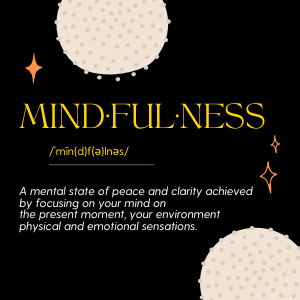

Prudence is the power or faculty of discerning beforehand and acting upon what one’s inner dictates seem to desire to be true. In philosophy, prudence is regarded as a virtue because of its ability to balance practical reason against religious faith. The term “prudence” comes from the Latin word prudence, to be tactful.
It means to have “clear sight.”
In the most common sense, prudence is the power to prudently foresight an inevitable future event, such as a decision, purchase, or any other concrete situation. In this sense, it is considered to be an intellectual virtue, grounded on the ability to weigh various conflicting desires against each other, with an unbiased consideration of the pros and cons, as well as the possible outcomes from those competing demands. In this broad sense, being prudent can be used in situations when people are in the state of deliberation and in the actual presence of others, where tact is needed for a more or less prudent action to have a just and acceptable outcome.
When applied to action, austerity directs us to take definite action to attain a goal or prevent an undesirable result. Then it is used as the guide towards reaching or avoiding certain conditions or events. In this way, conservatism is said to stand in opposition to wisdom. However, it should be noted that it is not a form of intellectual virtue. Wisdom is a higher form of knowledge and perception, which is dependent on the objectivity of a particular cognitive state.
Prudence’s four cardinal virtues are described as the elements which involve rational insight, a reflective exercise to arrive at the best possible decision. This is also closely connected to self-regulating emotions such as shame, anger, sorrow, pride, and jealousy.
These emotions make people do what is right and avoid what is wrong. In some sense, the reflective exercise involved in prudence may be likened to the process of thinking before acting. It can involve an awareness of what is required and appropriate in a given situation and a readiness to comply with social or religious norms.
In order to apply the definition of prudence to the other three cardinal virtues, we need further to explain the idea behind each element. The component of prudence referred to here is the judgment of rightness. This is a judgment concerning the probability of a particular course of action. In this regard, we must note that the elements of prudence do not include practical intuition but only a reasonable judgment grounded on reasons and realities. The aspects then include functional assessment, which gives us an insight into the future, the will to act, and general awareness of what is required and correct.
The elements of prudence then refer to the other three cardinal virtues: justice, temperance, and wisdom. Justice refers to a person’s behavior towards others. In terms of practical knowledge, it is wise to act prudently according to one’s values and inclinations. The will to act is related to temperance, which considers the possibility of excessive consumption of luxury goods. Finally, wisdom refers to a reflective ability and moral reflection, guiding how to live a just and harmonious life.
Practical wisdom, which we have noted is a distinct virtue, is related to prudence through foresight. Foresight helps us act in a better way, as we can see what will come next. We can foreshadow what might happen if we fail to work constructively. It is through foresight that we can prepare for challenging situations by taking appropriate preventive measures. This is similar to prudence, which sees the benefits of acting proactively and foresees the consequences of not working.
There are different interpretive meanings for prudence and wisdom. It has been noted that some philosophers think of prudence as foresight, while others think of prudence as practical wisdom. Some see prudence as the will to act, others as the practical wisdom to understand the reality of uncertainty. Both knowledge and prudence are essential parts of a complete approach to the philosophy of action. However, this article has focused on defining and discussing prudence in the broader context of philosophical perspectives on excellent and human virtue. For a complete and comprehensive guide to the subject, one must consult a higher power.
Some natural virtues, including prudence itself, spring from this discipline. Just as reason is the core of philosophy, so is the sense, the heart of practical reasoning. By teaching us how to distinguish between wise and foolish, Aquinas gives us an anchor to follow while navigating this world. This is how we can continually make progress towards excellence.
The first virtue associated with prudence is prudence itself – the ability to foresight. The ability to foresight is perhaps the most important virtue to be developed in anyone. Practical reasoning and foresight say to go hand in hand (since both depend on rational thought).
If you can discern what is likely to happen in the future – even in the next moment – then you are said to be “wise.” Indeed, “what is wise is done,” and this is what Thomas Aquinas teaches us in the First Treatise of Aristotle.
Prudence is also related to humility. Just as it is impossible to procure genuinely great things for a person who does not know how to acquire them, one should not take things for granted. A person ought to “care for the little things, for the present, and for the future.” This is how one ought to live his or her life, thus building up and strengthening the elements of prudence along the way.
The following quotation is one of the most famous explanations of this need for prudence from ancients:
In other words, it is said that prudence is the principle of proper conduct. This explanation is highly sound and appropriate. It can be applied in many different situations to explain why some things are done while others are not.
The above description of prudence is very general. Practical wisdom is not limited to what is right but consists of taking the best possible action under all circumstances. A different definition of prudence is to be cautious without impeding one’s own happiness or well-being. Another related purpose of prudence is to be careful in one’s behavior, choices, and choices in life as a whole. In a broader sense, prudence also consists of balancing what is morally right and what is just or appropriate.
What do we mean by prudence, then?
Prudence is fundamental wisdom regarding one’s own self-interest. The wise man makes every decision carefully and rationally. He chooses the things that will bring him maximum benefit both now and in the future. He knows how to use his money prudently. In fact, prudence is defined by some as a virtue and others as a practical skill.
The three virtues of prudence are temperance, moderation, and wit. In the former, one values one’s own feelings; in the second, he values his worldly well-being; and in the third, he values his ability to think logically and rationally. In a word, a person endowed with these three virtues is said to be prudent or wise. One of the most essential components of prudence is itself – that is, one’s capacity to be a reasonable, rational, and honest person. This is why diplomacy is equated with virtue.
Practical reason and experience tell us that man is inclined to choose his own kind rather than others (such as prudence). Therefore, virtue-bred attitudes are more prevalent among human beings than the virtues of cleverness, trickery, or timidity. Thus, whereas virtue-bred attitudes characterize a particular type of person – the prudent – others who embody such traits are cunning, deceitful, miserly, lazy, or boastful. These are what we would classify as “charitable” people.








